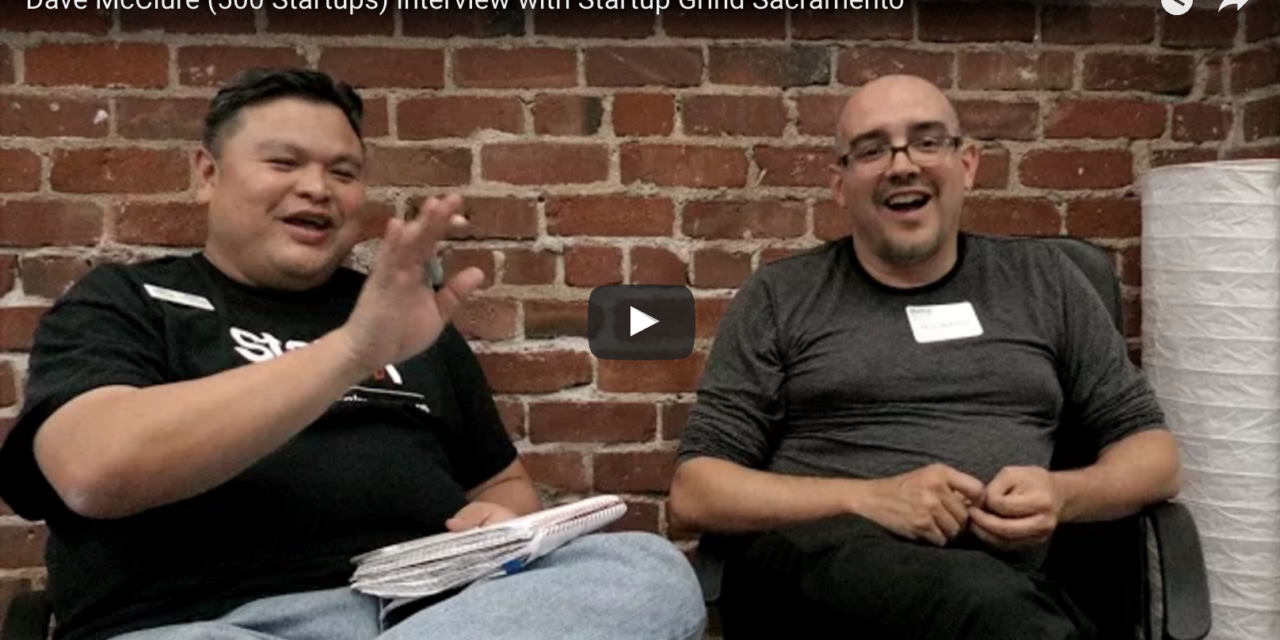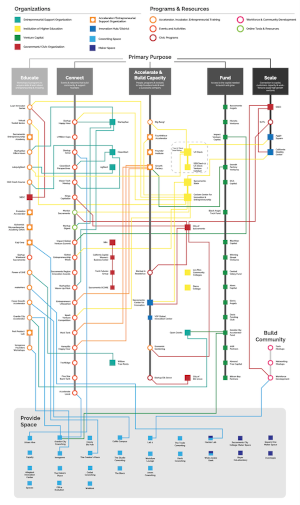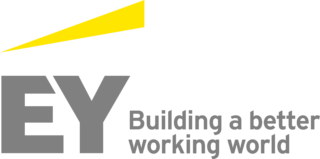Dave McClure is a Silicon Valley icon that is recognized as one of the region’s super angel investors. Over the years he has advised and managed a number of successful startups which includes 3 unicorns (Twilio, Credit Karma, and Grab) . He’s the co-founder of 500 startups and invested in more than 1500 companies around the world. Three companies have evaluations over $1 billion with over 300 with a valuation $10-$999 million range. He was recently a guest speaker at Startup Grind Sacramento and offered wisdom that was practical, to the point with a hint of humor.
“As an entrepreneur, you realize that you’re kind of clueless.”
In his humble manner, Dave explained how his path to success was a confusing and gradual process. He laughed about his past mistakes and launched 500 startups as a vehicle to guide entrepreneurs that are still wet behind the ears. It is a personal conviction to compensate for what he perceived was his failure of creating a large scale startup. “Looking back on the last 10-15 years and realizing that I could’ve figured out problems faster, part of it was trying to help people figure it out faster…and make [entrepreneurship] a little more approachable…for geeks.”
While many successful entrepreneurs glorify the ambitious startup lifestyle, McClure understands that it’s not all sunshine and ice cream. His ability to relate with entrepreneurs at any career stage allows him to connect with his audience and keep them grounded in reality. He recalls how difficult it was raising funds for his first startup saying, “We raised $30 million in 2 years and the first $5 million in the first year….It was a bit challenging.That’s a complete understatement, it was a ****ing pain in the ass.” His witty remarks kept the audience laughing and was a reminder that behind all of the clout in the industry, successful entrepreneurs are regular people just like us.
“When making a lot of investments, only a few will work out.”
As the perfected imperfect creatures that humans are, we try to make the best decisions in business, relationships and life in general. However, the truth is that more often than not, investments will fail to deliver as anticipated. “[We] know we’re gonna be wrong…and might not find an outcome that frequently but we hope that 20-30% of those get to a series A or larger investment and 5-10% in total get to $100 million plus sort of outcome…Maybe if we’re smart we can steer in of some of the capital into winners…but it takes about 10 years.” McClure’s calculated approach to business signifies he has well accepted that with investments, slow and steady wins the race.
“We do diversity because it’s a good investment not necessarily of social impact, that might happen and we hope it does but [ultimately] we’re trying to make money.”
McClure recognizes the potential in people from all backgrounds which has resulted in a diverse global network of entrepreneurs. Saying that more than 50% of his founders are non-white and 20-30% are female, his business model is shifting the traditional standard of gender/race dynamics in the workplace. “We actually think that there’s a lot of smart people that don’t have a penis and there’s a lot of smart people that aren’t white and went to Stanford…we just wan’t to make money…we like to say we’re arbitraging racism and sexism for our own economic benefit…” For example, one of his current endeavors has been developing a platform for Black and Latino entrepreneurs. Despite that sounding like a social effort, it’s commercially viable given that these demographics make up 30% of the American market.
Moreover, McClure believes that his foreign outreach into less developed countries will become profitable as well. Places like Pakistan, Nigeria and Indonesia have huge populations with markets that continue to increase their internet usage. By strategically investing a couple million dollars here and there, he hopes to establish a solid foundation for when these markets begin to take off. “If we’re willing to deploy capital in those markets for an extended period of time and learn, we are going to find some things that work. When those things start to work, we would want to have already done a hundred investments, made friends, built our brand, have people on the ground and understood how those markets work.”
“Have fun get sh*t done…When we have fun, other people have fun.”
500 Startups has a reputation for being a fun and festive accelerator. McClure may be a bit unorthodox in his approach to business but understands the value of hard work and creating a solid product. He feels that no amount of money is worth sacrificing fun and personal sanity. Still, there has to be a balance between fulfillment and progress that his organization instills into the minds of his employees. When asked why do many startups fail, he said it could be for a number of reasons. However, he insisted that the main cause is usually because “they build stuff people don’t want or build it for the wrong customer.” He assures the crowd that in order for any VC or investor to take an entrepreneur seriously, they must have gotten their product out the door and have some type of customer base. He emphasized that although this truth may sound basic, they’d be surprised how many people miss this point.














